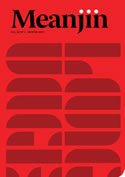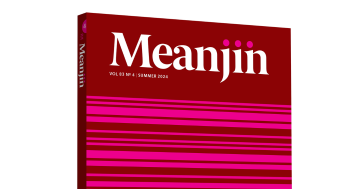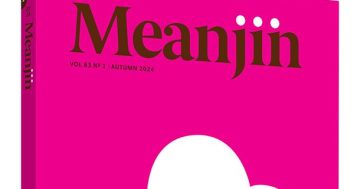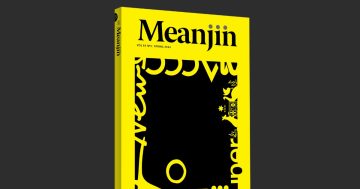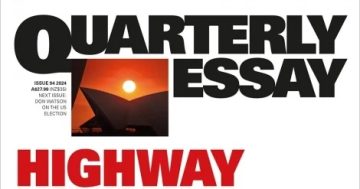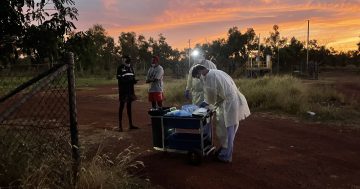Reviewed by Rama Gaind.
Edited by Jonathan Green. Melbourne University Publishing, $24.99.
 Green writes what all of us have been thinking: there’s recently been an overwhelming sense of doom, gloom and doubt. This follows months of ‘heat, fire and political fury’.
Green writes what all of us have been thinking: there’s recently been an overwhelming sense of doom, gloom and doubt. This follows months of ‘heat, fire and political fury’.
The environment is set to challenge us — and quickly. It’s perfectly obvious that we are living in a changing world because the summer was a “foretaste; not a ‘new normal’, more the long-anticipated beginning of an altered world that will test our resilience, our political and economic structure and our ambition for change”.
The autumn 2020 issue states “our challenge has shifted, but the importance of thought and literature, as means of both describing our world and finding paths to enhance it, endure”.
In the cover essay in Volume 79, Gomeroi poet, essayist and scholar Alison Whittaker takes on the idea of white fragility and asks “has white people becoming more aware of their fragilities and biases really done anything for us — aside from finding a new way to say ‘one of the good ones’ or worse, asking us to’?”
Whittaker aims squarely at a progressive white culture that sees an elevated racial conscience as a path to post-colonial innocence.
The researcher at the Jumbunna Institute for Indigenous Education and Research said,
“strategy for change lies not in some essential truth — because whiteness is a very wriggly structure with its innocence at the centre, and it will accommodate any incursions we throw. That’s what’s missing in this theorization: an understanding that white people are looking for themselves in critical whiteness and white fragility, not their responsibility”.
“White fragility is no real vulnerability. We know who it puts in the line of breaking. We know who really shatters on the floor and who leans over saying nice things.”
Other essays include a powerful piece by Anna Spargo-Ryan on the often-brutal history of abortion in women’s lives and men’s politics. While Rick Morton shares his version of Australia in Three Books, Maxine Beneba Clarke considers risk and writers’ acts of courage. Timmah Ball asks that most fundamental of questions: why Write? “Were they looking for the next successful blak book.”


